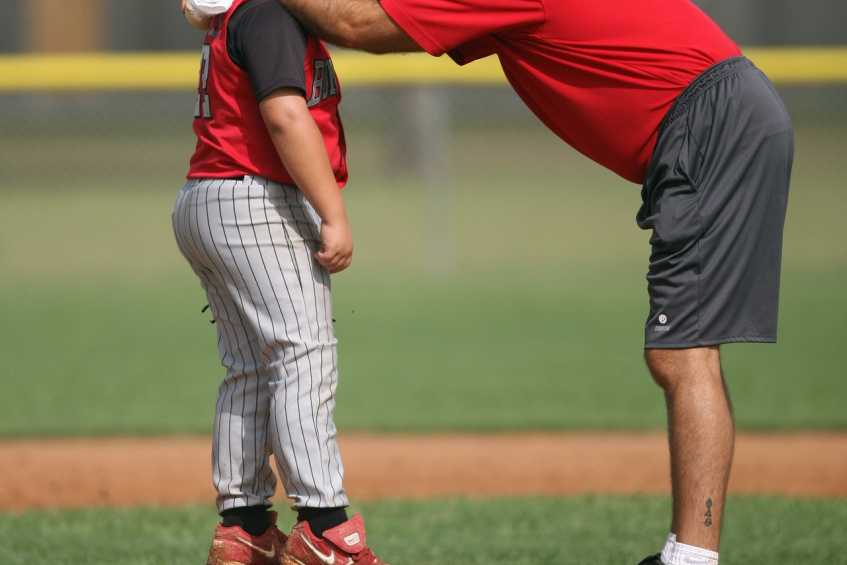
When we talk about players' mental game, we are usually referring to them having little or no confidence. It is very discouraging for coaches and parents to see kids play with no confidence and not know what to do about it. Of course, it is worse for the player themselves, as they cannot figure out how to get rid of their frustrations. Their body actions and demeanor tell the story. They appear self-centered and out for themselves. They do not want to act that way but seem not to control their emotions and appearance. Coaches can and should help each player's mental game development.
The best coaches are continually working on the mental aspect of the game as well as the physical and realize that one without the other is a recipe for failure.
Most athletes would say that success is dependent on having confidence. Confidence is the inner peace in an athlete that allows them to believe that their skills are enough for the job at hand. It often comes and goes in ballplayers depending on their recent success or failure rate. The more times they have that self-assurance, the easier it is for them to relax and concentrate, two essential ingredients to get in the best mental frame of mind to focus.
The good news is that there are ways to help players develop their mental games. Things coaches and parents should know and try:
Success is never easy in any sport with the game of baseball arguably the most difficult of all. The skills of throwing, hitting and fielding require great precision that takes many years with perfection never a real possibility.
Each year a player advances up a level in baseball, the mental game development of a ballplayer becomes a greater need. By the time a player reaches the professional level, the mental preparation is as important as the physical. The mental routine of professional ballplayers is a twenty-four-hour process, where players review the events of the past game, analyze them to see where they could have improved, before moving on to getting ready psychologically for the next game.
Another key to mental game development is helping players incorporate a mental routine. Some may say that it is superstition with athletes, but it mostly involves creating daily cues for games and before each play. Coaches must help players develop their habits that lead to inner peace that they are ready for the action and game.
One's mental game routine leads to focus with the ultimate goal of the mental game development being the state of "playing in the zone" the mental state where players can slow the game down in their heads and react efficiently without seeming ever to have to think of what they are doing. That state of mind is another elusive thing for many, but something players can work to achieve.
Coaches can help players achieve the mental game development and preparation necessary for advancement in the game. Try these to help your players stay in the moment and develop concentration.
The best coaches remain calm under intense game conditions and after mistakes. Playing is easier for youth when they don't have a fear of letting you down. Grilling and condemning players after gaffes hurt their concentration the next time.
There is enough pressure on kids to do well and win that comes from their parents and themselves. When coaches pile it on players often become overwhelmed to the point of wanting to quit playing. Coaches must help players learn to deal with the pressure, so they become resilient and less prone to the tension that comes with playing. Following are other suggestions coaches can try to help with the mental game development with the result being more mentally strong players.
During practice and games coaches can do these for developing coping skills:
In conclusion, coaches have many ways to help with an athlete's mental game development. They must realize it is a season-long process that clicks quickly for some athletes while it may take much longer or never for other ballplayers. #coachingyouthsports #mentalgamedevelopment
After playing major league baseball, Jack Perconte has taught baseball and softball since 1988 and offered valuable coaching training too. He has helped numerous youth players reach their potential, as well as having helped parents and coaches navigate their way through the challenging world of youth sports. Jack is one of the leading authorities in the areas of youth baseball training and coaching training advice.
All Jack Perconte articles are used with copyright permission.There are 0 comments on "Mental Game Development is Crucial and Possible"
chandler allen says:
"Hi my name is chandler, i’ve enjoyed..."
On Wanting to tryout for summer ball. as an 18 year old
david graham says:
"With no current MLB team in Canada,..."
On With no current MLB team in
Charles Chavez says:
"To All Coaches: Do you have13U or..."
On Looking for Games